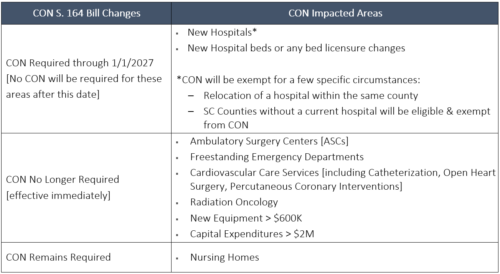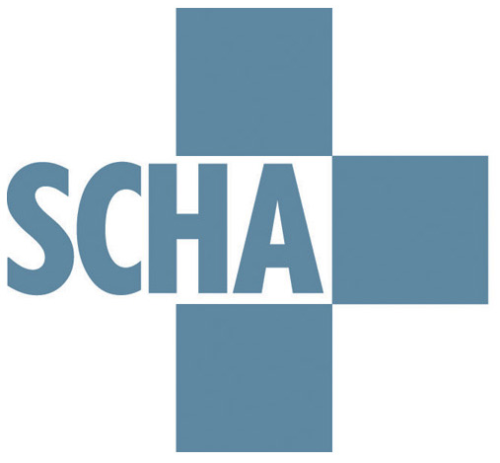Introduction
In the recent 2023 South Carolina legislative session, bill S. 164 [State Health Facility Licensure Act] passed through both chambers of the state government and has been signed by the Governor. This bill immediately eliminates the CON requirement from most healthcare facilities that previously required one, with some specific caveats. As this bill becomes law, we explore the details of the changes and the potential immediate implications for healthcare in South Carolina.
Background
The South Carolina Certificate of Need [CON] program was established in the 1970s to regulate the construction, expansion, and acquisition of healthcare facilities and services. The primary goal of CON was to control healthcare costs by preventing the unnecessary duplication of services across the state. Under this program, providers were required to obtain a certificate from the state health agency before initiating significant capital projects or introducing certain services.
In recent years, there has been a significant debate among the state legislature and various stakeholders about reforming or repealing CON regulations. There have been both positive and negative arguments, but in general these regulations were viewed as a hinderance to competition, innovation, and access to services.
A breakdown of the signed repeal bill’s impacted areas is summarized in the grid below:

Full details of the bill can be found here.
Potential Impacts and Implications to the South Carolina Healthcare Landscape
The repeal of the CON program in healthcare will have various implications and challenges for providers. The primary expected outcome of the repeal is increased competition among healthcare entities. With the removal of CON, new providers can enter the market more easily, leading to potential innovation, cost reduction, improved quality of care, and expanded services.
The repeal may also improve access to healthcare services by removing CON regulation barriers. Providers will now be able to establish new facilities and offer new services, leading to better access, shorter travel distances for patients, and increased availability of services. Established facilities will face increased competition and will need to adapt to improve their services, and lower costs to remain competitive.
Critics of the repeal express concerns about the financial burden caused by larger provider organizations having to continue to focus on unprofitable services, while losing revenue from competitors in the profitable service market, such as ASCs. There is also hesitation regarding the potential compromised quality and safety without regulatory oversight. However, to mitigate these concerns, South Carolina still maintains other important licensure mechanisms to ensure high quality healthcare.
Potential implications to current healthcare providers within the state include:
- Limited Capital Expenditure budgets and ability to access additional funds
- Ability to act quickly and overall speed of project implementation
- Enhanced focus on provider recruitment and retention
- Focused affiliate provider alignment and partnership
- Emergence of new competition from national competitors, including payer/provider organizations, specialized providers, and other large bordering health systems
- Competition on patient loyalty and increased brand awareness
- Amplified impact of state licensure and community zoning boards on project approvals
Potential Strategies for CON Repeal
Potential strategies to address the above CON repeal implications include:
- Thoughtful prioritization of capital dollars and fundraising opportunities
- Exploring partnerships and/or acquisitions
- Aligning and assessing the prioritization of projects and services
- Standardizing construction models for quicker roll out
- Assessing the competitive forces across markets
- Optimizing patient retention and brand loyalty
- Building Centers of Excellence and working with payors on value-based care opportunities
The repeal of South Carolina’s Certificate of Need program marks a significant change in the state’s healthcare landscape. While it has the potential to promote competition, innovation, and improved access to care, concerns still remain. It will be crucial for policymakers, healthcare providers, and regulators to monitor the outcomes of this decision, ensuring that patients continue to receive high-quality care and that healthcare resources are allocated efficiently and effectively across the state.
Questions for Further Consideration
- What can you do to counter the potential implications outlined above?
- How can you reprioritize capital $’s appropriately?
- How fast can you act to implement impacted services?
- How do you market and maintain patient loyalty?
- Is there potential to align or partner on services?
- What do you believe will be CON Repeal’s biggest impact on the state?
- What additional strategies will be used by healthcare providers to capture market share in the state?







